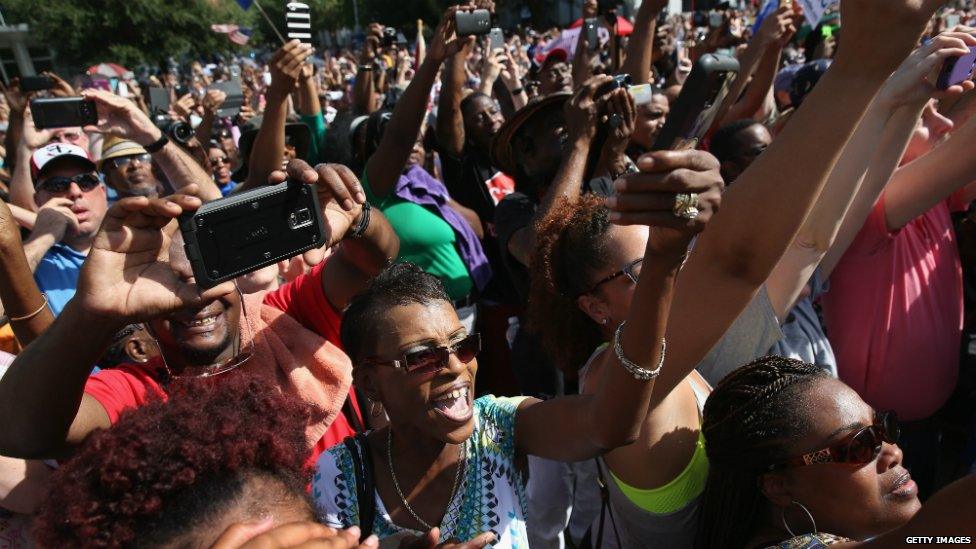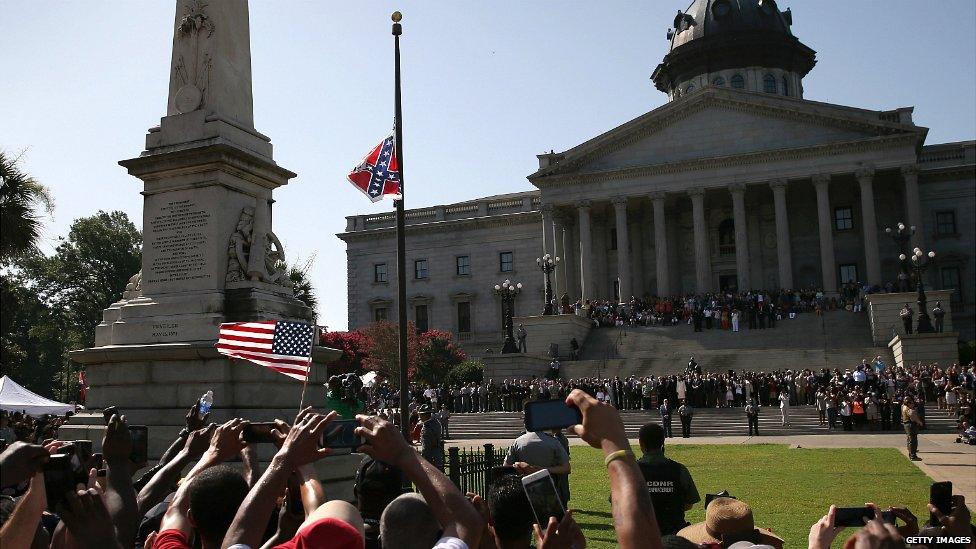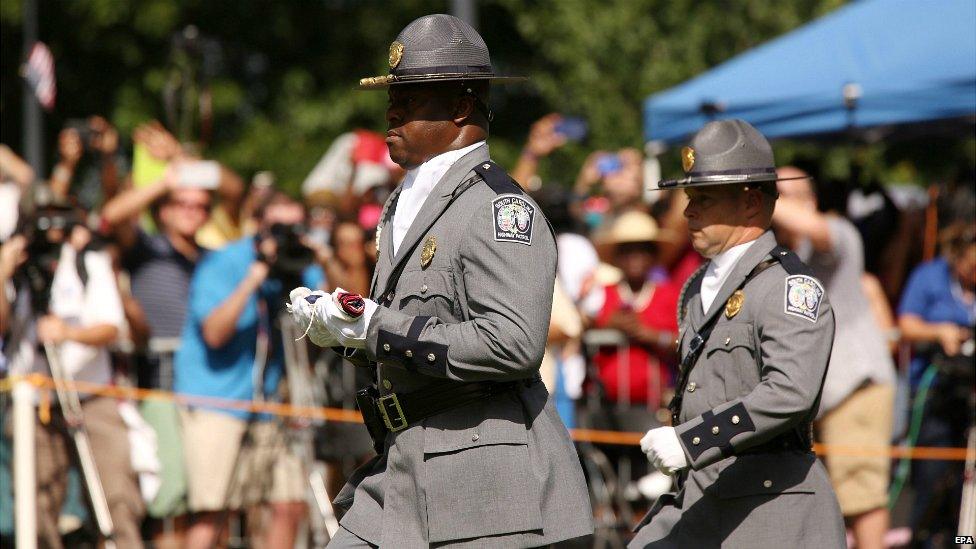Confederate flag taken down from South Carolina capitol
- Published
"It's a great day in South Carolina, the flag is coming down, years of repression are over"
The Confederate flag has been removed from South Carolina capitol grounds in a ceremony attended by large crowds.
A bill calling for the banner to be taken down was signed on Thursday by Republican Governor Nikki Haley after a long and fractious debate.
A symbol of slavery to its critics, the flag was heavily associated with the man accused of killing nine black churchgoers in South Carolina in June.
It had stood on the state grounds for more than 50 years.
Hundreds of people turned out to watch the event in Columbia on Friday morning. Some chanted "take it down" while they waited for the ceremony to begin.
Shortly after 10:00 ET (14:00 GMT) an honour guard of state troopers marched on to the grounds and lowered the flag.
Ms Haley, who did not speak at the event, stood on the steps of the statehouse as the flag was lowered and nodded in the direction of the crowd after someone shouted: "Thank you governor".
'Signal of healing'
The banner was then handed to a state archivist to be transported to a nearby museum where Governor Haley said people "can honour it appropriately".
It will eventually be housed in a multimillion-dollar shrine that lawmakers promised to build as part of a deal to get the bill removing the flag passed.
Earlier, Ms Haley told the NBC TV news network: "No one should ever drive by the statehouse and feel pain. No one should ever drive by the statehouse and feel like they don't belong."
After the removal, President Barack Obama tweeted: "South Carolina taking down the confederate flag - a signal of good will and healing, and a meaningful step towards a better future."

At the scene: Nick Bryant, BBC News, South Carolina

A joyous carnival erupted on the streets of Columbia, as a multi-racial crowd gathered for the lowering of the Confederate flag.
As the controversial colours were furled, there was a sense of immense catharsis: the feeling that there had been a break from past, that South Carolina, and the south more broadly, had moved on.
Then came the chants of "U-S-A, U-S-A, U-S-A" - a cry of national unity.
Though it will take more than the removal of a flag to solve America's racial problems, it was a demonstration of how the Charleston shootings have changed attitudes, and brought about a reckoning with the past.

The flag was the battle emblem of the southern states in the US Civil War, and its supporters today say it is an important part of southern heritage.
The backlash against it grew when nine black people were shot dead at a Charleston church in June and the man charged with the killings, Dylann Roof, was pictured holding the flag.
Mr Obama delivered a eulogy at the funeral for Clementa Pinckney, a state senator and pastor at the church, who was killed in the attack.
After the shooting, the White House said President Obama believed the flag "belongs in a museum".

Crowds chanted "hey, hey, hey, goodbye" as the flag was lowered to the ground

It was handed over to a state archivist by a black state trooper as the crowd cheered
South Carolina's leaders first flew the flag over the statehouse dome in 1961 to mark the 100th anniversary of the Civil War. It remained there to represent official opposition to the civil rights movement.
Several groups have boycotted South Carolina in protest over the flag's status at the capitol.
After the flag removal bill was signed on Thursday, the US college sport authority - the NCAA - said it was lifting its ban on holding championships in the state.
The National Association for the Advancement of Colored People (NAACP) is also expected to lift its 15-year boycott of South Carolina at the weekend.